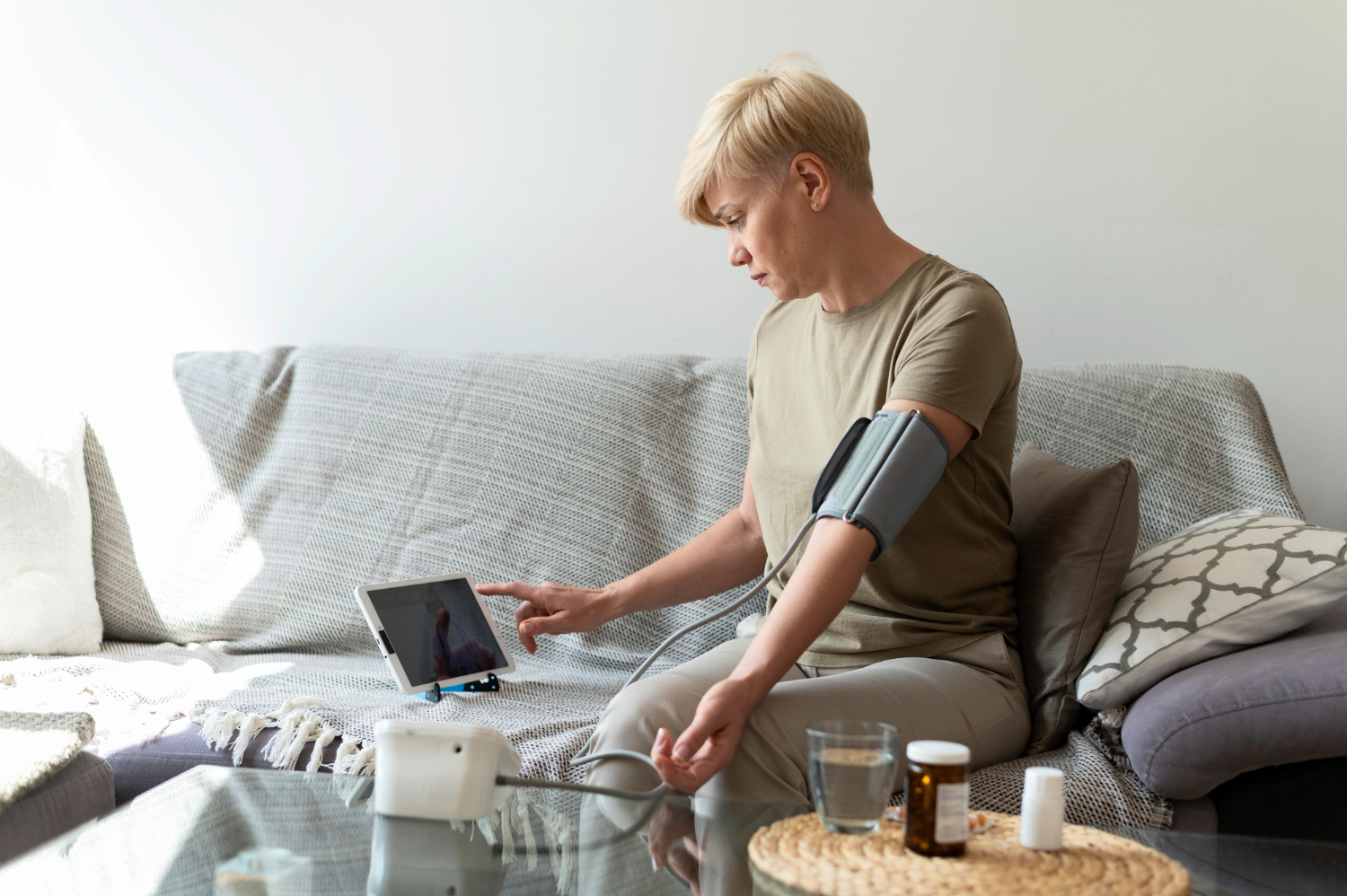Performing Basic Health-Related Tasks at Home

When it comes to looking after your own health or helping a loved one, even the smallest actions can make a difference. Whether you are checking blood pressure, taking temperature, or keeping track of daily health changes, these basic health tasks form the foundation of safe and confident home care.
If you are helping an ageing parent, recovering from surgery, or living with a chronic condition, knowing how to manage these simple routines can bring peace of mind. In Australia, where home care services like AktRapid support thousands of families, learning these skills can help you or your loved one stay comfortable and independent at home.
Why Basic Health Tasks Matter
Think of basic health tasks as your home’s first line of defence. They help you spot small changes before they turn into big problems. A slightly higher temperature, a sudden spike in blood pressure, or unexpected fatigue could all be early signs that something needs attention.
When you or your caregiver know how to handle these tasks properly, you can communicate better with healthcare professionals. It is like being the eyes and ears of your own health team—keeping everyone informed and one step ahead.
Understanding the Basics: What You Can Do at Home
Performing basic health tasks does not mean you need to become a nurse overnight. It simply means learning safe, accurate, and routine ways to monitor your health. Here are a few essential ones that can make a real difference in daily life.

1. Taking Temperature
Body temperature gives quick insight into your overall health. A small digital thermometer is all you need to track it.
Here is how to do it:
- Make sure the thermometer is clean before use.
- If using an oral thermometer, place it under the tongue and wait for the beep
- If using an ear or forehead model, follow the manufacturer’s instructions carefully.
- Record the reading and note the time of day.
Pro Tip: Temperature can vary slightly throughout the day, so consistency is key. Try checking at the same time each day.
If someone has a fever (above 38°C), it may be time to contact a healthcare provider or discuss options with a care service like AktRapid, which provides trained professionals who understand early signs of health changes.
2. Blood Pressure Checks
Blood pressure is a silent indicator of how well the heart is working. Regular monitoring can help prevent sudden issues.
You can use an automatic home blood pressure monitor—many are available in pharmacies across Australia.
Here is a simple method:
- Sit comfortably with your feet flat on the floor.
- Place the cuff around the upper arm.
- Press the start button and wait for the reading.
- Record both the systolic (upper number) and diastolic (lower number) results.
Tip: Avoid taking readings immediately after exercise or stress. Rest for five minutes before you start.
If you notice numbers that are too high or too low, do not panic—record the readings and discuss them with your doctor or care team.
3. Monitoring Pulse and Heart Rate
Your pulse tells a lot about how your heart is performing. You can check it manually or use a digital device.
To check manually:
- Place two fingers on your wrist (below the thumb).
- Count the beats for 60 seconds.
- Write down the result and note if the rhythm feels steady or irregular
A normal resting heart rate for adults is between 60 and 100 beats per minute. If you notice a drastic change, it may be worth consulting your healthcare provider.
4. Observing Breathing and Oxygen Levels
Keeping an eye on breathing patterns is important, especially for those with respiratory conditions. You can count breaths manually or use a pulse oximeter to check oxygen levels.
- A healthy breathing rate is usually between 12 and 20 breaths per minute
- A normal oxygen level is between 95% and 100%.
If breathing becomes shallow or oxygen levels drop below 92%, contact medical help immediately.
5. Weight Monitoring
Sudden changes in weight can indicate fluid retention, medication effects, or dietary issues. Weigh yourself at the same time each day, ideally in the morning before breakfast.
Keep a small notebook to record daily results. A pattern of consistent gain or loss may be a sign to reach out to your healthcare team.
Building Confidence in Home Health Care
Performing these basic health tasks regularly can feel intimidating at first. But with time, they become part of your daily rhythm—like making morning tea or checking the mail.
The key is consistency, patience, and proper training. Home care professionals from AktRapid can provide guidance and support to help you gain confidence in handling these responsibilities safely.
They can also help set up a routine that suits your lifestyle, whether you are caring for a parent in Sydney, recovering after surgery in Melbourne, or managing a long-term illness in Perth.
You can learn more about how professional caregivers assist with home-based support by visiting AktRapid Home Care Services.

Safety First: When to Seek Help
Even if you are confident with basic health tasks, there are moments when it is best to call for help. Contact your doctor or healthcare provider if you notice:
- Persistent fever or sudden chills
- Consistently high blood pressure readings
- Chest pain, dizziness, or irregular heartbeats
- Difficulty breathing or confusion
- Unexplained swelling or rapid weight gain
Remember, home monitoring is about early awareness, not self-diagnosis.
Using Basic Health Tools Correctly
Your tools are your helpers. Treat them with care and respect:
- Thermometers: Wipe with alcohol swabs before and after each use.
- Blood Pressure Monitors: Store in a dry place and replace batteries regularly.
- Pulse Oximeters: Keep clean and avoid moisture.
- Scales: Place them on a flat, hard surface for accuracy.
Keeping these tools clean and ready makes each reading more reliable.
How AktRapid Supports Home Care in Australia
Home care is not just about medical tasks—it is about maintaining dignity, safety, and comfort. AktRapid provides trained caregivers across Australia who can assist with basic health tasks, medication reminders, and personal support.
Their team works closely with families to create care plans that match individual needs. Whether you require short-term assistance after surgery or ongoing help for chronic illness, AktRapid offers flexible solutions that prioritise your comfort and independence.
You can find more details or request information at AktRapid Home Care Services.
Small Steps, Big Impact
Managing your own health or helping someone at home might feel overwhelming at first. But remember—every check, every reading, every note you take is a small act of care that adds up to something meaningful.
With regular practice and the right support, you can turn basic health tasks into a routine that protects your wellbeing and gives you peace of mind.
And when in doubt, you are never alone. AktRapid is just a call or click away to offer guidance, professional care, and a helping hand when you need it most.
Ready to take control of home health care?
Let AktRapid guide you through safe and reliable basic health tasks that keep you or your loved one comfortable at home.
Visit AktRapid Home Care Services today to speak with a care specialist and find the right home care plan for your needs.